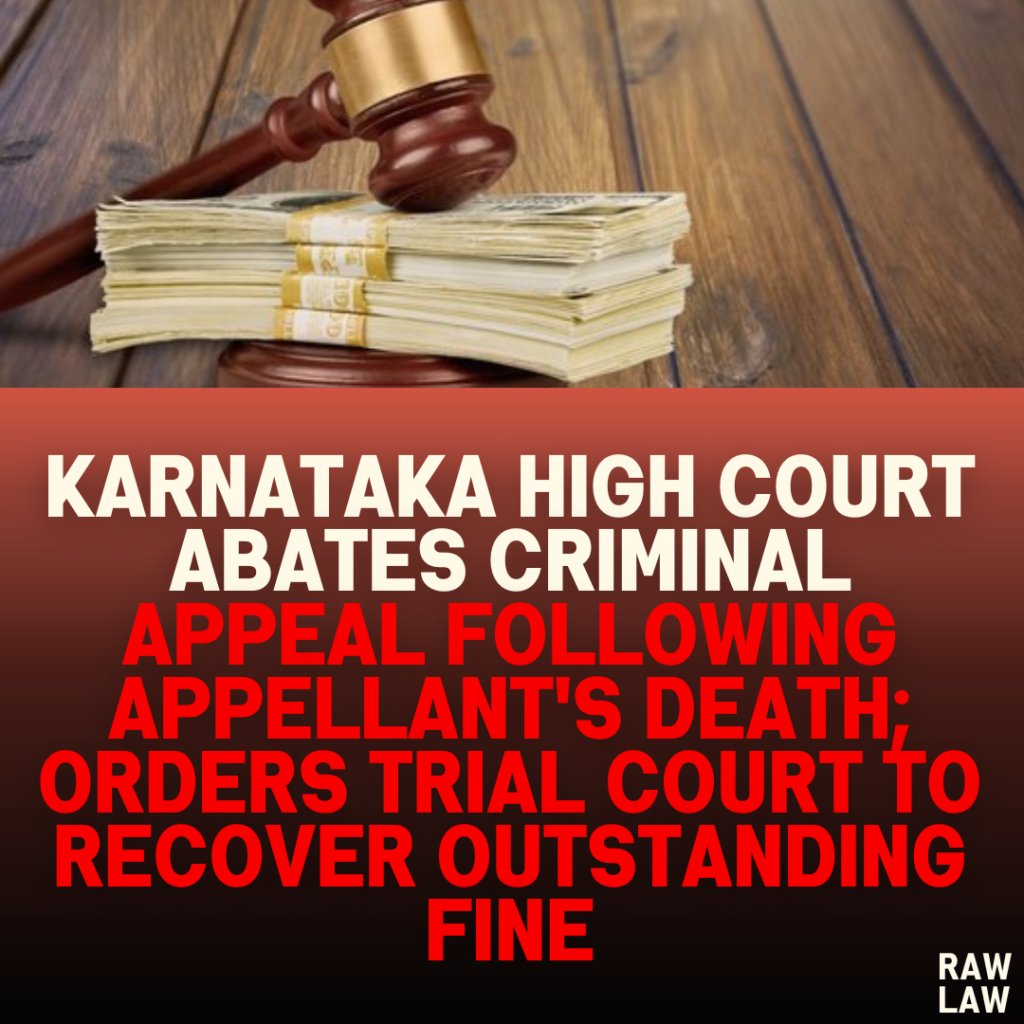Court’s Decision:
The High Court of Karnataka dismissed the criminal appeal filed by the appellant under Section 374(2) of the Criminal Procedure Code, challenging the conviction and sentence for an offense under Section 135 of the Electricity Act. The appeal was dismissed as abated following the appellant’s death, with the court directing the trial court to initiate steps for the recovery of the fine in accordance with law.
Facts: The appellant was convicted by the I Additional Sessions Judge and Special Judge, Bangalore Rural District, under Section 135 of the Electricity Act. Following his conviction, the appellant filed an appeal challenging the trial court’s judgment. However, during the pendency of the appeal, the appellant passed away on May 3, 2024, as evidenced by the submitted death certificate.
Issues: The primary issue was whether the appeal could proceed in light of the appellant’s death and if there was any interest from the appellant’s legal heirs to continue the prosecution of the appeal.
Petitioner’s Arguments: The learned counsel for the appellant reported the appellant’s death to the court and submitted a copy of the death certificate. However, the counsel expressed that there were no instructions on whether the legal heirs intended to continue the appeal.
Respondent’s Arguments: There were no recorded submissions from the respondent following the appellant’s reported death.
Analysis of the Law: Under criminal appellate procedures, if an appellant passes away, the appeal typically abates unless legal heirs express interest in continuing the case. The court, in this situation, acted per the procedural requirements, dismissing the appeal upon the absence of further interest from the appellant’s legal heirs.
Precedent Analysis: The court followed established legal procedure under criminal appellate law, where the death of an appellant generally results in the abatement of the appeal unless successors choose to continue.
Court’s Reasoning: The court reasoned that since the appellant had died and no legal heirs indicated interest in continuing the appeal, it should be dismissed as abated. However, because there was an outstanding sentence of a fine, the court directed the trial court to recover the fine following legal procedures.
Conclusion: The High Court dismissed the appeal as abated due to the appellant’s death and instructed the trial court to recover the fine amount per legal provisions.
Implications: This ruling underscores the court’s approach in handling appeals abated by the appellant’s death, particularly in cases involving fines or financial penalties. It also highlights the court’s procedural compliance in ensuring recovery of fines despite the appellant’s demise.



